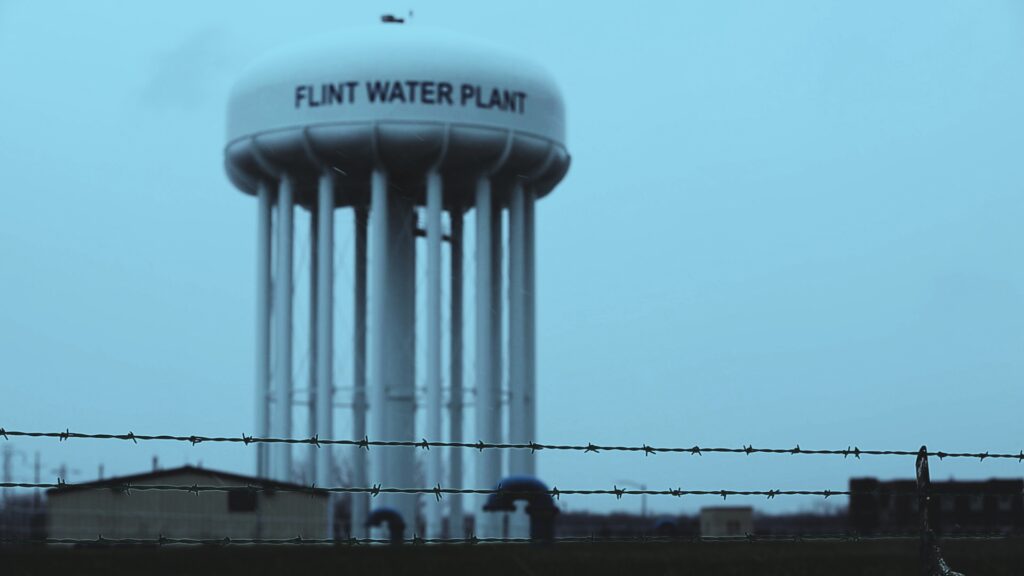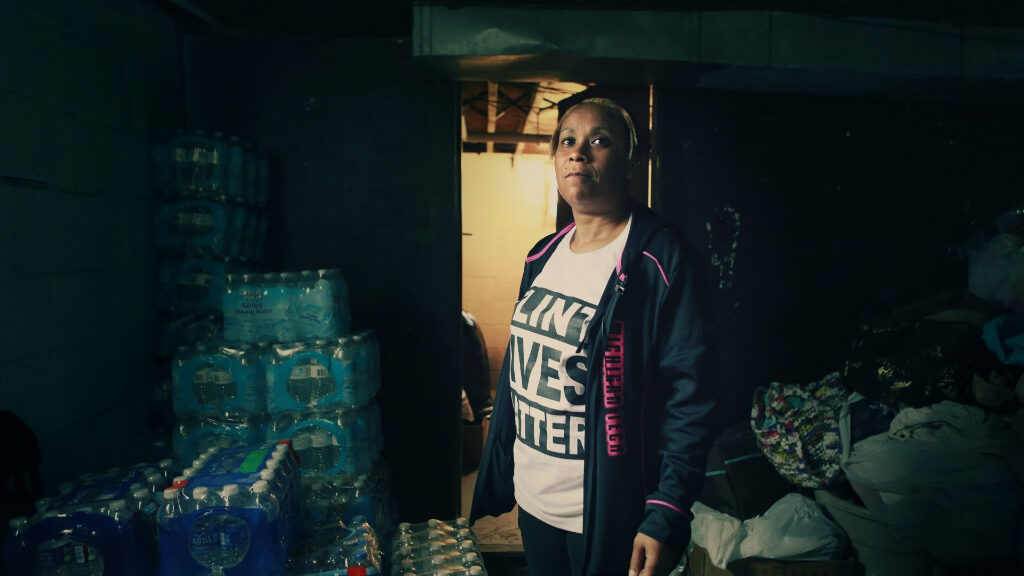Flint follows the true events that occurred in Flint, Michigan when, to save money, their newly elected governor decided that the main water supply would come from the Flint River.
The water was too corrosive and stripped the inside of the lead pipes that pumped it through the city, sending thousands of litres of a poisoned water supply into the homes of Flint families. This documentary film walks the viewer through every step of Flint residents’ fight to protect themselves and achieve a basic human right – clean water.

Director Anthony Baxter focuses on the people affected, the uncertainty of the last five years, and the future. Each section of the film is based on a new discovery, a new set back or moment of hope, that continue to affect those in the town today. It is utterly heart-breaking to watch these parents, these children, talk about how their lives have been affected – the rashes, the sickness, the unknown, long-term impact of lead poisoning; the miscarriages of children and justice, the fear and frustration around water, a necessity that is denied to a whole community.
The film introduces some key figures fighting for justice and change. Most importantly, it highlights the warmth and hope found in those coming together to protect their community in ways the governing body did not.

One group which is granted particular attention is Flint Water Crisis, which was founded by two Flint mothers, LeeAnne Walters and Melissa Mays. They were responsible for organising the first massive testing of the water coming through the taps, getting bottles of clean water to those who could not get it themselves, organising legal support and communicating the appropriate knowledge people needed to stay healthy. The care, passion and determination of these people and every other group who joined forces to protect their community are juxtaposed against the ineffectual leadership and response from the government.
It poses the question: who can you trust?
Whilst definitely biased towards the struggles of the residents (as it should be), Baxter also takes opportunities to talk to those across the board – scientists and charity members, doctors, lawyers and politicians, to construct a full picture. But Baxter never forgets the most important part – the people who are living with the effects of the crisis. Alec Baldwin’s narration calmly supports the residents’ stories, coming full circle when he himself visits the town towards the end of the film.

Viewing of this documentary is of paramount importance. The news cycles move so quickly that we often forget about those struggling who get left behind. In creating this documentary, Baxter and the team of filmmakers bring Flint and its residents’ struggles back into the mainstream, ensuring their story does not become yet another forgotten tragedy.
Flint is a beautifully-shot, emotive documentary that focuses on the victims of Flint’s water crisis, people whose lives will continue to be affected by it long after it’s resolved. It invites us to see their suffering, to understand it, and ultimately, to remind us that for Flint, this disaster is far from over.
Flint is available on BBC iPlayer from December 1st.
